It’s been 13 days since the 11-2 drubbing the Massachusetts hockey team suffered at the hands of Merrimack. Now, in order to defend their home ice against the same team, the Minutemen have to move their feet and get “greasy.”
“Get in there and get your nose bloody,” UMass coach Don Cahoon said. “Take the punishment that, when you’re inside grade A, you’re bound to receive – almost enjoying that part of the game. Some guys do it more than others and we need to be able to do that as a group.”
The Minutemen (6-16-5, 5-11-5 Hockey East) have shown spurts of that intensity, divulging a fixation towards outhustling and outmuscling their opponent.
But sustaining it for a full 60 minutes is a different story.
“With our team, one of the things we’re trying to overcome is the watching,” Cahoon said. “Sitting on the bench and everybody kind of watching and waiting for the other guy, seeing what’s going to happen.”
Players’ feet become stagnant, and the simple philosophy Cahoon preaches throughout weekly practices gets lost in the mental game.
“Keep moving your feet, making plays, get off the ice and let the next guy do it,” Cahoon said.
Instead, players often suffer from what Cahoon likes to call “paralysis through analysis.”
“You stop yourself from moving because you’re over-thinking situations or looking for the next guy to take care of things or you start to get concerned about the scoreboard,” Cahoon said. “Get the scoreboard out of the picture and play the game, each situation as it occurs. That’s a real mental challenge to be able to push yourself through that when fatigue starts setting in. It becomes a war of attrition.”
Rather than barking at the players during practice, as Cahoon puts it, the Minutemen need to take the initiative and remind each other whenever a player starts losing his assertiveness. Motivation has to be internal and come from the locker room.
Fatigue may be a factor. It was a factor when UMass allowed three straight goals to Providence last Saturday and watched its 2-0 lead vanish in a matter of five minutes. The results of playing back-to-back nights spilled over on the ice, and the energy level drained.
However, there’s also the strength factor.
“We’re young and not as developed as we need to be,” Cahoon said. “Bigger motors, bigger engines, bigger bodies – that takes time. There are times when our energy is so good and our speed shows itself to be what it is, that we completely dominate, regardless of who we’re playing.”
Nestled in the seventh spot of the conference standings, and 10 games under .500, there are far more times when that energy level gets left behind.
“What this team needs right now more than anything else is to get stronger,” Cahoon said. “That shows itself in the inability to sustain that pace for extended periods of time.”
In Friday’s game against Boston University, Cahoon noticed how in the third period, with both teams tied at three, UMass was on its heels. BU outshot the Mass Attack, 13-3, in the third before losing in overtime.
The Terriers’ domination came after the Minutemen tallied a 23-14 shot advantage after the first two periods.
This weekend, the Minutemen will have to deal with a Merrimack team that features seven 23-year-olds and five 24-year-olds. Unlike UMass, strength is one of Merrimack’s biggest advantages. The upcoming home-and-home matchup against the No. 6 team in the country will show whether or not UMass can withstand confrontations with bigger bodies.
The same conviction and intensity that the Minutemen started with against the Terriers will need to be there against the Warriors. Sustaining it, however, will be a much harder task.
Pete Vasquez can be reached at [email protected].


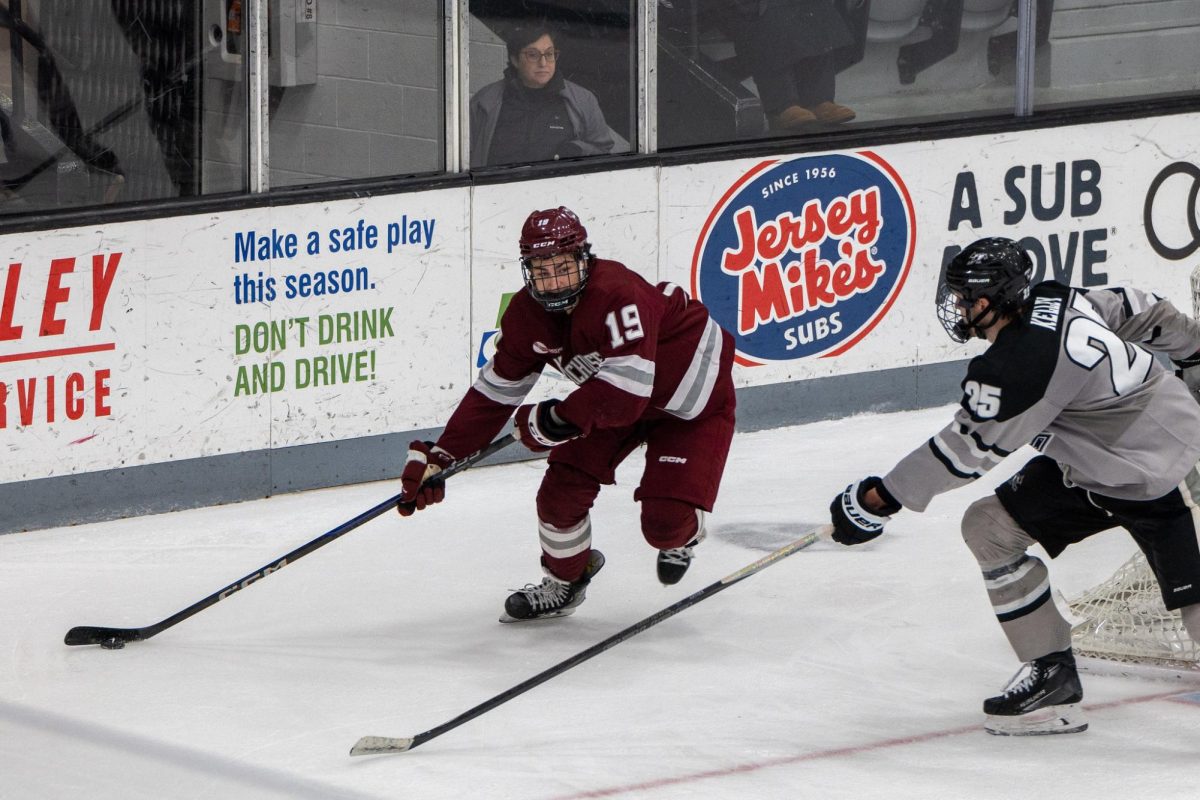
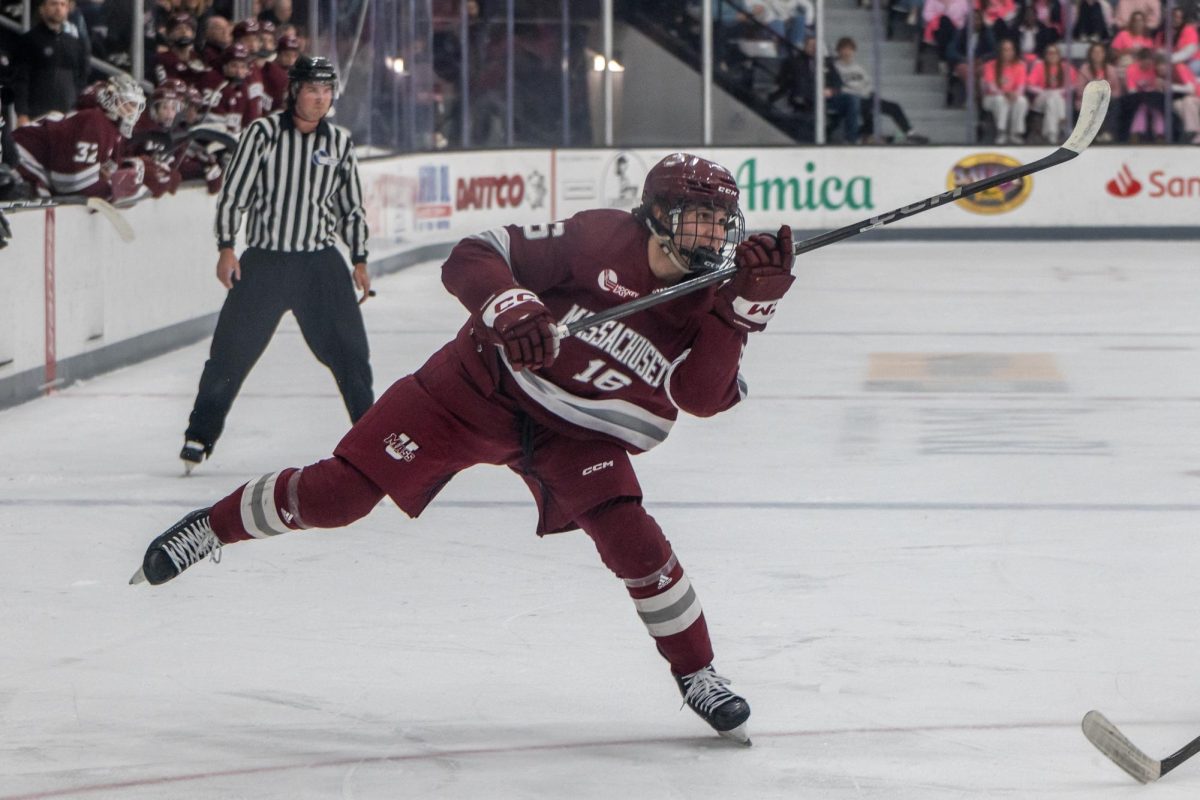
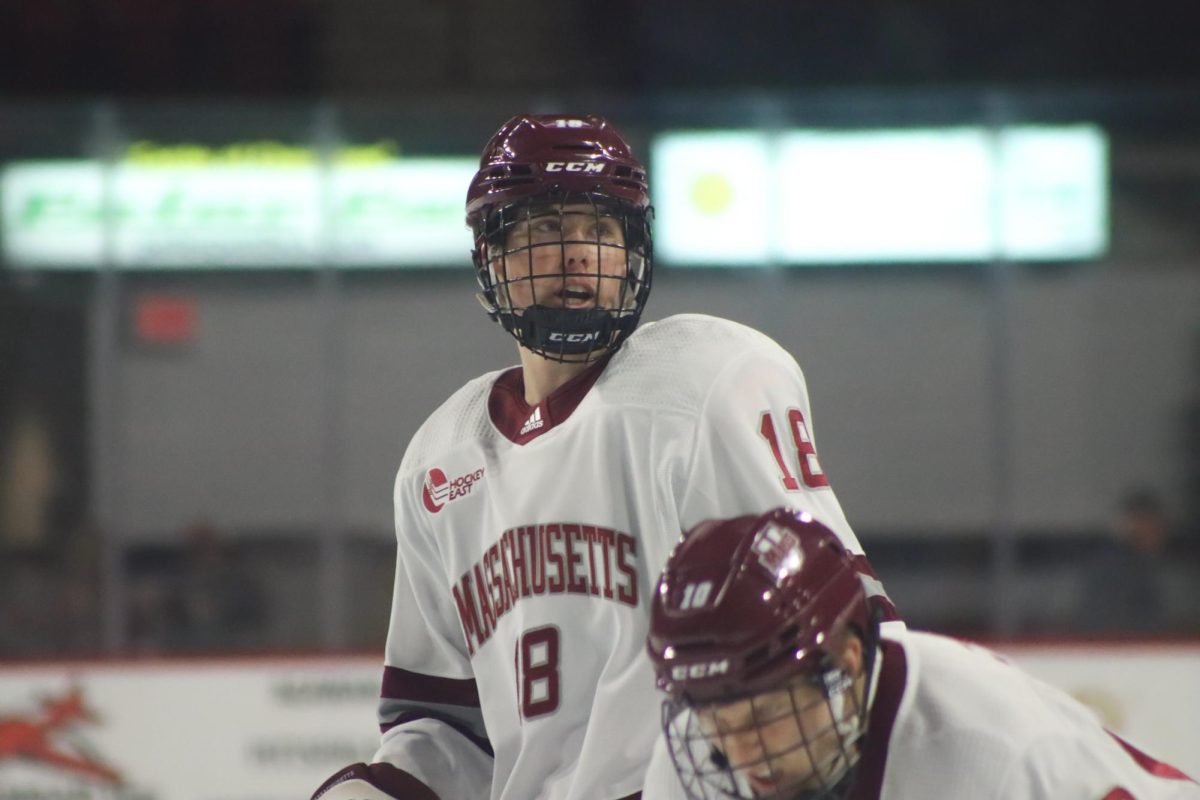
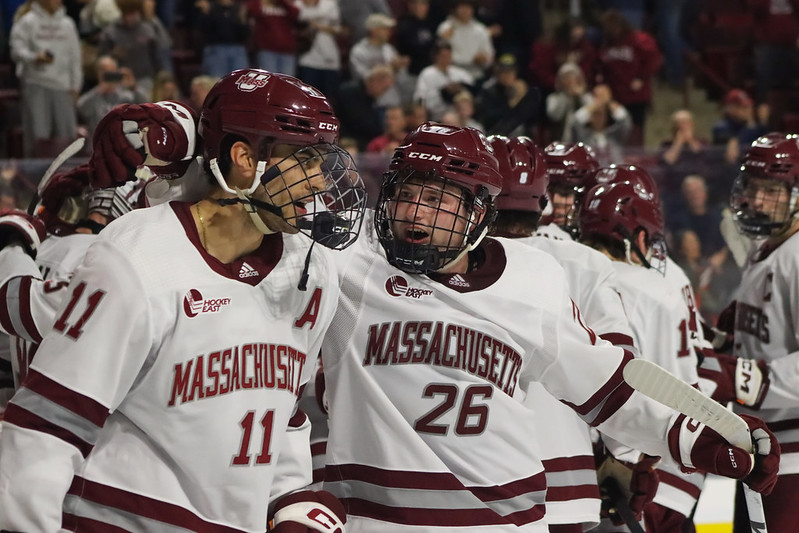
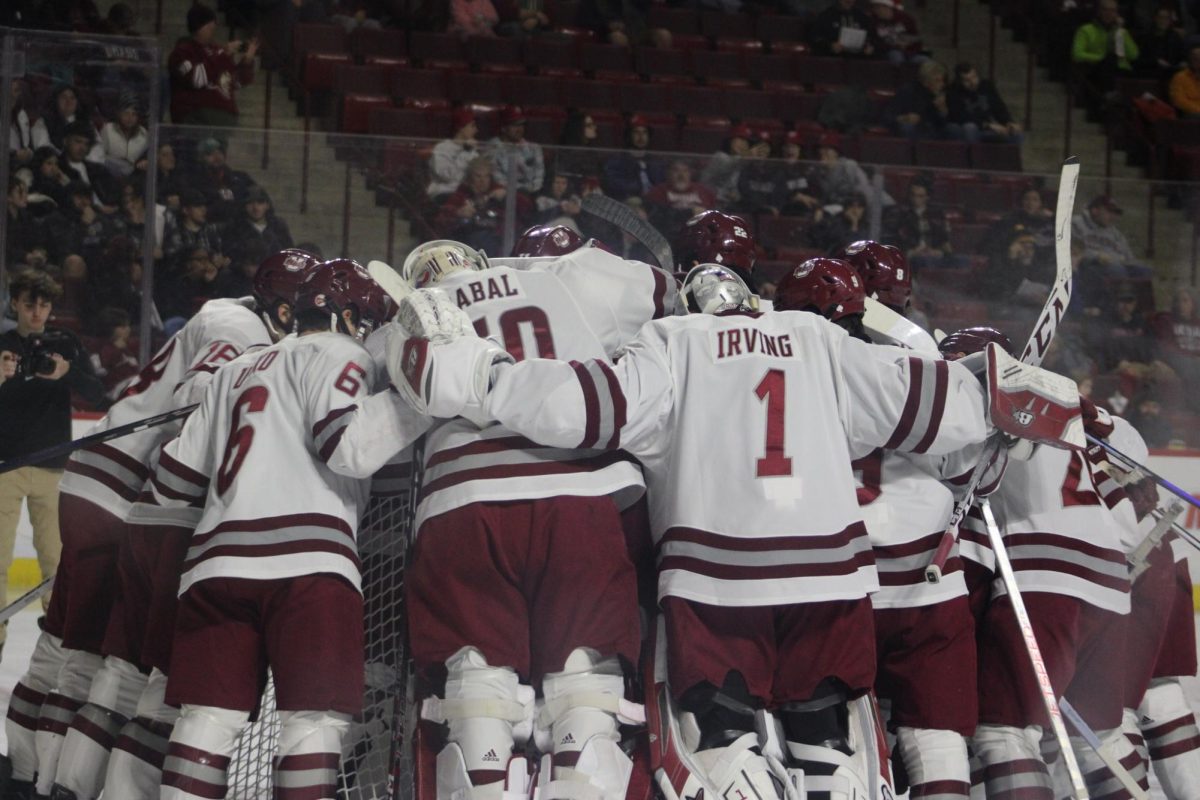
Michael Oksanish • Feb 18, 2011 at 11:26 am
Great article.